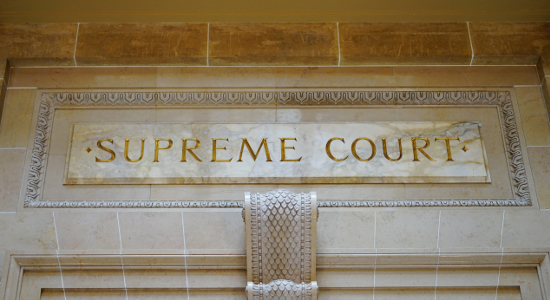
Aug. 24, 2018 – The Wisconsin Supreme Court recently accepted review of six criminal cases, including one to determine whether an expunged operating while intoxicated (OWI) conviction can be used to support a conviction for a second offense.
The state charged Justin Braunschweig with a second offense OWI, even though his first OWI conviction, causing injury, was expunged from his record.
Records maintained by the state transportation department noted his expunged OWI, and the state used those records to convict Braunschweig on a second offense. Braunschweig argued that those records could not be introduced to convict him.
The Jefferson County Circuit Court disagreed, allowing the expunged record to come in, and a state appeals court affirmed that ruling and upheld Braunschweig’s conviction.
“I conclude that under the plain meaning of the statutes, an expunged conviction is a ‘conviction’ to be counted when determining the penalty for OWI-related offenses, and that the State may present a certified DOT record that reflects an expunged conviction to prove the existence of a prior OWI conviction,” wrote Judge JoAnne Kloppenburg.
Now, the supreme court will review whether the expunged OWI conviction could be introduced to help determine whether Braunschweig was guilty of second offense.
Other Criminal Cases Accepted for Review
The Wisconsin Supreme Court also accepted review in four other criminal cases, which will be added to the docket for the 2018-19 term that begins after Labor Day.
State v. Friedlander
The supreme court may decide whether a prisoner can get sentence credit for time served when he was not in jail. The defendant was mistakenly released and never told, by his probation officer or corrections, to report back to jail to serve out the sentence.
State v. Wayerski
The supreme court may decide whether Gary Lee Wayerski received ineffective assistance of counsel by not asking him about certain statements he made to a state’s witness and not seeking a mistrial for admission of certain evidence.
The court may also determine whether the state’s failure to disclose a state witness’s pending criminal charges – a so-called Brady violation – warrants a new trial.
State v. Wiskerchen
The supreme court may decide whether a crime committed on a certain date can cause “losses” on an earlier date, for purposes of restitution.
Wiskerchen pled guilty to burglarizing the victim’s house on a certain date, but restitution was based on multiple burglaries of the same house. To impose restitution, courts must find a “causal nexus” between the “crime considered at sentencing” and the victim’s alleged damage, according to the state appeals court decision in Wiskerchen.
State v. Reed
In this search and seizure case, the supreme court may decide whether police entry into the defendant’s home was lawful, based on third-party consent. A police officer entered the defendant’s residence without a warrant believing he had the legal consent to do so.
State v. Pinder
In this case, the issues presented is whether a search warrant for the placement of a GPS device on a motor vehicle is void if not executed within five days after issuance, under Wis. Stat. section 968.12, even if it is otherwise reasonably conducted.
